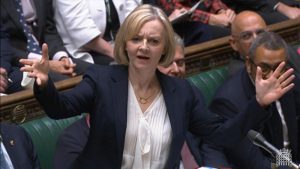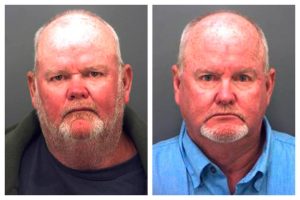For the first time since the 1950s, Cuba will have a leader whose name is not Castro, as Raúl Castro announced Friday that he will step down as first secretary of the country’s ruling Communist Party just ahead of the 10th anniversary of his appointment.
“As long as I live I will be ready with my foot in the stirrups to defend the fatherland, the revolution, and socialism.”
—Raúl Castro
Castro—who has ruled Cuba since his brother Fidel resigned from the Communist Party central committee on April 19, 2011—announced his retirement during the 8th Party Conference in Havana, teleSUR reports.
“I believe fervently in the strength and exemplary nature and comprehension of my compatriots,” he told the conference, “and as long as I live I will be ready with my foot in the stirrups to defend the fatherland, the revolution, and socialism.”
The 89-year-old—who played a key role as a military commander in the revolution that overthrew the brutal U.S.-backed Fulgencio Batista regime in 1959—said that he has fulfilled his mission and “is confident in the future of the fatherland.”
Comrade Raul Castro steps down today as the First Secretary of the Communist Party in Cuba after a lifetime of service to the revolutionary cause. Venceremos! pic.twitter.com/fEMvujqYpP
— Vijay Prashad (@vijayprashad) April 16, 2021
Castro leaves office after having implemented significant economic reforms, with the government recently allowing private businesses to operate in most sectors of the economy. While the government continues to repress political freedom, Cubans still enjoy social benefits unheard of in the United States, including free cradle-to-grave healthcare and education.
SCROLL TO CONTINUE WITH CONTENT
Get our best delivered to your inbox.
Under Castro, Cuba continued its globally renowned policy of international humanitarian assistance, which drew praise from then-U.S. President Barack Obama during his historic March 2016 visit to Havana. Last year, the Cuban government sent 2,000 doctors and nurses abroad to nearly two dozen nations during the coronavirus pandemic.
This year’s party conference coincides with the 60th anniversary of the Bay of Pigs invasion, a failed attempt by CIA-backed Cuban exiles to destroy the revolution that ended half a century of U.S. domination. In 1898, the U.S. conquered Cuba from Spain and directly ruled the island as a colony for years before backing a series of dictators friendly to Washington and Wall Street interests.
The CIA just declassified documents showing that it had tried to pay a Cuban pilot for “arranging [an] accident” on the plane carrying Raúl Castro during a 1960 flight to Prague.https://t.co/e8U1UNRauT
— Matthew Petti (@matthew_petti) April 16, 2021
The U.S. repeatedly tried to murder the Castros, with Raúl becoming the target of the earliest-known CIA assassination plot against the brothers. The Castros survived more than 600 often outrageously outlandish assassination attempts against them, and outlasted 12 U.S. presidents. They also defiantly endured 60 years of internationally condemned U.S. economic embargo and a decades-long campaign of terror against the Cuban people.
It is widely believed that Miguel Díaz-Canal, the 60-year-old president, will replace Castro. The next Cuban leader will face an ongoing pandemic and concurrent economic crisis exacerbated by the continuing U.S. embargo, and will face internal and external pressure to enact further reforms while remaining faithful to the ideals of the revolution.






